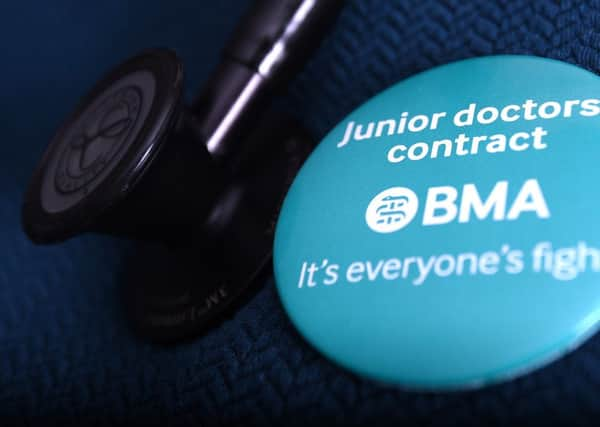YP Letters: General practice has to become more patient-friendly


IT is time that doctors in hospital and general practice took control of their profession. They have been led down a disastrous path to near destruction by the management in hospital and general practice.
GPs are complaining about a surge in demand for care from an ageing population, and that they have complex health problems. It has always been so. The advances in medical treatment over the past 50 years have made sure that our patients live happier and longer lives. This was my main reason for going into surgery.
Advertisement
Hide AdAdvertisement
Hide AdPatients did not suddenly become 70 and over. As we get older, our bodies begin to deteriorate and eventually we die. This is what we learn at medical school. We also learn resilience and to work well when tired and to never complain to our patients. We are supposed to be professionals; and never to go on strike. Many patients are being led to have a very low opinion of GPs.
Last year 600 GP training posts were left unfilled. Why? This question must be answered by the GP practices.
Medical students have to do a three week stint in a GP practice and what they see often puts them off general practice for the rest of their medical careers. I put this question to many medical students; I will not tell you what they said as it would be too upsetting to the good GPs.
Threatening to leave their general practice, as the BMA has stated, and to work in Australia or Canada is an empty threat, they would not get a job there or they would have to take their exams again.
Advertisement
Hide AdAdvertisement
Hide AdThreatening to leave general practice or retire early is one of the main reasons why medical students do not wish to work in general practice in this country. No one wishes to stay on a sinking ship.
Firstly general practice must become more patient-friendly; that is they must have a more open door policy and make it easier to get a GP appointment.
A GP rota for out of hours must be set up in each area; this is the practice in the rest of Europe.
Each GP must have a clinical area of interest in a branch of medicine, and have an attachment to the particular specialty in the hospital. So a GP practice will have doctors that will specialise in geriatrics, diabetes, lung diseases, coronary disease, dementia, mental health and depression, woman health, and palliative care. They must be able to make a clinical diagnosis and have the specialised equipment to support their diagnosis and treatment.